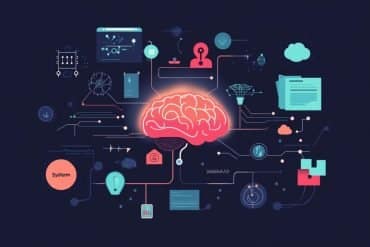Summary: How the brain represents and codes a pleasant outcome can have an impact on decision making.
Source: SfN
The brain keeps track of the value of an experience as well as how it unfolds over time; overemphasizing the ending may trigger poor decision-making, according to new research published in Journal of Neuroscience.
A bout of bad weather at the end of a vacation can sour the impression of the entire trip. The tendency to focus on the ending may stem from how the brain encodes the value and temporal profile of an experience.
Vestergaard and Schultz created a computational model explaining how participants chose between two streams of coins varying in size where larger coins have a higher value. The model revealed a discrepancy between the true value of an experience — how much money was in the stream — and the value people placed on how it developed.
People disliked when the coins decreased in size, even if the stream was worth more money overall, resulting in their making the wrong decision.

The findings from the model tracked with brain activity data from fMRI. During the task, the amygdala encoded the actual value of a choice, while the anterior insula encoded dislike towards a negative ending — in this case, if the coin stream decreased in size. This representation can overpower information from the amygdala, leading people to undervalue experiences that end poorly despite starting well.
The best decision-makers had the strongest representation in the amygdala, indicating an ability to disregard a lesser ending and choose the better option.
About this neuroscience research news
Source: SfN
Contact: Calli McMurray – SfN
Image: The image is credited to Vestergaard and Schultz, JNeurosci 2020.
Original Research: Closed access.
“Retrospective Valuation of Experienced Outcome Encoded in Distinct Reward Representations in the Anterior Insula and Amygdala” by Vestergaard and Schultz. Journal of Neuroscience
Abstract
Retrospective Valuation of Experienced Outcome Encoded in Distinct Reward Representations in the Anterior Insula and Amygdala
Our ability to evaluate an experience retrospectively is important because it allows us to summarize its total value, and this summary value can then later be used as a guide in deciding whether the experience merits repeating, or whether instead it should rather be avoided. However, when an experience unfolds over time, humans tend to assign disproportionate weight to the later part of the experience, and this can lead to poor choice in repeating, or avoiding experience. Using model-based computational analyses of fMRI recordings in 27 male volunteers, we show that the human brain encodes the summary value of an extended sequence of outcomes in two distinct reward representations. We find that the overall experienced value is encoded accurately in the amygdala, but its merit is excessively marked down by disincentive anterior insula activity if the sequence of experienced outcomes declines temporarily. Moreover, the statistical strength of this neural code can separate efficient decision-makers from suboptimal decision-makers. Optimal decision-makers encode overall value more strongly, and suboptimal decision-makers encode the disincentive markdown more strongly. The separate neural implementation of the two distinct reward representations confirms that suboptimal choice for temporally extended outcomes can be the result of robust neural representation of a displeasing aspect of the experience such as temporary decline.
SIGNIFICANCE STATEMENT
One of the numerous foibles that prompt us to make poor decisions is known as the ‘banker’s fallacy’, the tendency to focus on short-term growth at the expense of long-term value. This effect leads to unwarranted preference for happy endings. Here we show that the anterior insula in the human brain marks down the overall value of an experience as it unfolds over time if the experience entails a sequence of predominantly negative temporal contrasts. By contrast, the amygdala encodes overall value accurately. These results provide neural indices for the dichotomy of decision utility and experienced utility popularised as Thinking fast and slow by Daniel Kahneman.







